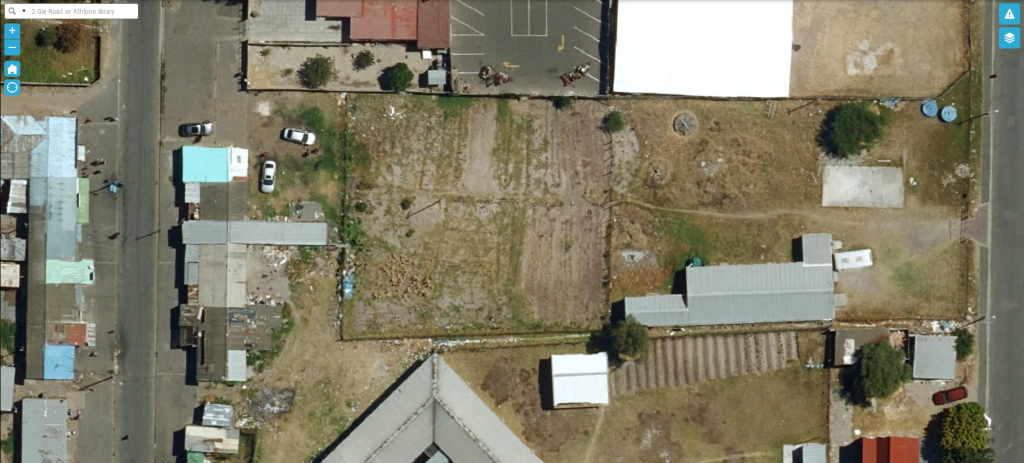Langa Agri/Food Hub

Overview
The Covid-19 pandemic and lockdown have laid bare the inequities and fragility of our food system, particularly in our most vulnerable communities. Given the vast scale of the food system as a whole, or even a city-regional food system, a small-scale, ground-up approach is a practical, viable alternative that can strengthen local food production (especially micro- & small-scale farms) and shorter supply chains, create diversity in the food supply chain and channels of distribution (from farm to fork), and contribute to a more circular local economy.
The SA Urban Food & Farming Trust is working in the under-resourced community of Langa with a local non-profit, the Masakhe Foundation, on a pilot project to establish local supporting infrastructure, farming inputs and services (AgriHub)* to assist existing and new urban farmers, and also establish supporting infrastructure and services for market access (FoodHub)* by these farmers to local customers. This will strengthen existing urban small-scale farmers, micro-farmers and community gardens, increase local availability of locally grown produce, improve opportunities for farmers to expand into commercial farming, improve household nutrition and food security in Langa, and strengthen social cohesion.
The project site, owned by the Red Cross Society, is located in the heart of Langa, within the Langa Cultural Heritage Precinct, adjacent to the Lerotholi Food Garden.
The SA Urban Food & Farming Trust has committed to spend a combined R1.5 million for infrastructure and capital investment in the Langa Agri/Food Hub and Lerotholi Food Garden projects, with an additional amount committed for pre-implementation planning, design and other costs.
This pilot project will eventually have local, Langa-based operation of the Agri/Food Hub, with the SA Urban Food & Farming Trust providing strategic and planning support, implementation support, and ongoing mentoring as needed, anticipated to diminish with time and structured to avoid long-term dependency. Opportunities to scale similar Agri/Food Hubs into other communities, creating a network of nodes, are also being identified.
* DEFINITIONS Agrihubs support primarily the "farming" or production aspects of being a farmer, and can have some overlap with a FoodHub. Core components of an agrihub are the following: > Input-side services, e.g. nursery, extension support, tool hire, farming inputs, etc. > Value addition for farmers, e.g. sorting facilities, pack houses and processing infrastructure. > Knowledge generation/innovation function to share good technical practice but also to collect and disseminate local knowledge and practice > A coordination/market agent function of availability and order fulfilment to assist with market access An agrihub and its functions work best when controlled and managed by the farmers themselves. A strong and locally appropriate governance system to ensure the smooth operation of the hub is an important feature. Innovative products and services can be explored and added in time as appropriate, including, e.g., improving access to financial services to farmers such as credit facilities, micro-insurance, loans, credit ratings systems, and savings products or stokvels; providing training and skills development; coordinating the introduction of PGS/certification standards; identification, testing, introduction,
supply and support of new methods, technologies and other innovations appropriate to local farmers. ----------------------- Foodhubs support primarily the "marketing" or sales and distribution aspects of being a farmer and can have some overlap with an AgriHub. Core components of a FoodHub are the following: > Carry out or coordinate aggregation, distribution, and marketing of primarily locally produced foods from multiple producers to multiple markets. > Work with producers as business partners instead of suppliers. > Work closely with producers to ensure they can meet buyer requirements by either providing technical assistance or finding partners that can provide this technical assistance. > Use product differentiation strategies to ensure that producers get a good price for their products, e.g., identity preservation (knowing who produced it and where it comes from), group branding, specialty product attributes (such as heirloom or unusual varieties), and sustainable production practices (such as certification). A FoodHub and its functions work best when controlled and managed by the farmers themselves. A strong and locally appropriate governance system to ensure the smooth operation of the hub is an important feature. SOURCE: SA Food Labs Workshop Report, Workshop Report, "Designing a smallholder farmer-focused agri-hub" (2017)
No comments:
Post a Comment